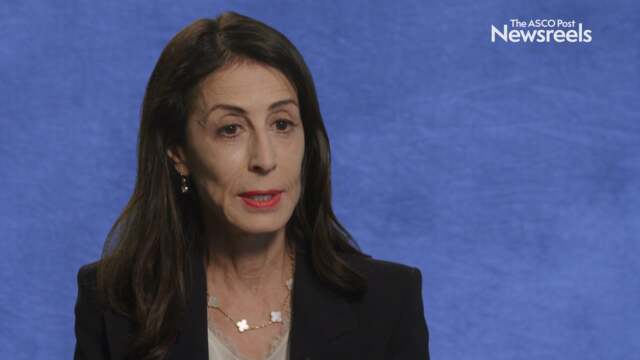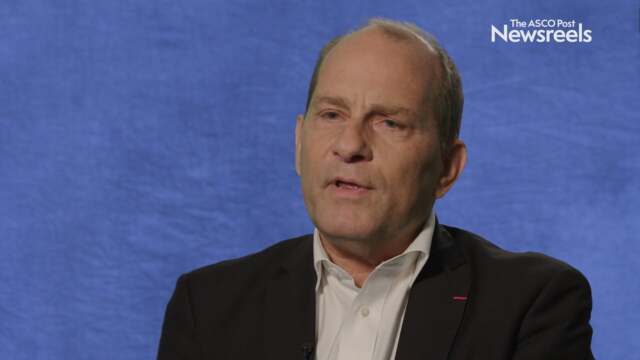Martin Reck, MD, PhD, on Immunotherapy for Thoracic Malignancies: Expert Perspective
ESMO 2018 Congress
Martin Reck, MD, PhD, of the LungenClinic, discusses recent updates on biomarkers beyond PD-L1 expression; mechanisms and management of resistance; as well as combinations and novel approaches in lung cancer.
Matthew J. Ellis, MB, BChir, PhD, of the Baylor College of Medicine, discusses data on endocrine therapy alone or in combination with targeted treatments for postmenopausal women with strongly ER-positive/HER2-negative tumors.
Matti S. Aapro, MD, of the Genolier Cancer Centre, discusses the optimal treatment and supportive care for older patients with cancer, including the importance of maintaining dose density and intensity as well as monitoring toxicity.
Cora N. Sternberg, MD, of San Camillo-Forlanini Hospital and the Israel Englander Institute of Precision Medicine at Weill Cornell, discusses results from the phase III CheckMate-025 study on nivolumab vs everolimus for mRCC; the CheckMate-214 study on nivolumab, ipilimumab, and sunitinib for treatment-naive advanced or metastatic clear-cell RCC; and immunotherapy for urothelial cancer for both first- line cisplatin-ineligible and second-line therapy after cisplatin chemotherapy.
Alexander M.M. Eggermont, MD, PhD, of Gustave Roussy, discusses findings from recent adjuvant trials in high-risk melanoma, and what the NCCN Guidelines recommend in light of such data as results on dabrafenib plus trametinib vs anti–PD-1 treatments (nivolumab or pembrolizumab) and the new standard for wild-type disease.
Lisa A. Carey, MD, of the University of North Carolina, and Sherene Loi, MD, PhD, of the Peter MacCallum Cancer Centre, discuss the phase III IMpassion 130 trial testing the first-line combination of the PD-L1 inhibitor atezolizumab plus nab-paclitaxel in metastatic triple-negative breast cancer (Abstract LBA1_PR).





